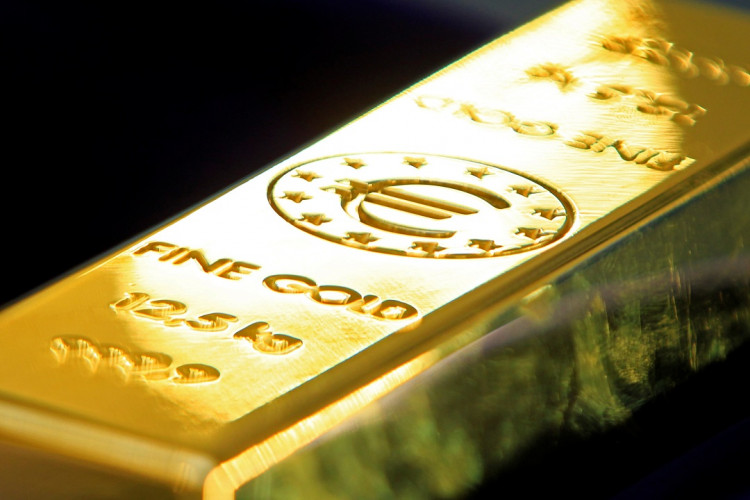Gold prices reached record highs on Wednesday, driven by geopolitical tensions and uncertainty surrounding the upcoming U.S. presidential election, even as U.S. bond yields climbed and the dollar strengthened. The precious metal, typically considered a safe-haven investment, surged past $2,750 an ounce before retreating slightly, underscoring investors' flight to safety amid concerns over potential political and economic turbulence. At the same time, global stock markets saw declines as investors refrained from making major bets ahead of the U.S. election.
The rise in gold prices comes as investors reassess how much the Federal Reserve might cut interest rates following strong U.S. economic data. While markets had been pricing in more aggressive rate cuts, the latest data has prompted speculation that the Fed may opt for smaller reductions. The odds of a 25-basis-point rate cut at the central bank's next meeting in November have risen to 90%, according to CME Group's FedWatch tool, while the chance of a second cut by the end of the year remains strong. This recalibration has pushed U.S. Treasury yields to a three-month high, with the 10-year benchmark yield climbing to 4.24%.
Thomas Hayes, chairman of Great Hill Capital in New York, said that rising yields reflect investor expectations of a pro-growth administration potentially coming to power after the election. "There's some fear about deficit spending under a new administration, which could further boost inflation," he explained. These concerns are contributing to the uptick in gold prices as a hedge against inflation and market volatility.
On Wall Street, stocks fell across the board, with the Dow Jones Industrial Average slipping 0.52% to 42,700.16, the S&P 500 dropping 0.36% to 5,830.00, and the Nasdaq Composite down 0.56% to 18,469.35. Losses were led by consumer discretionary, healthcare, and technology sectors. Kathleen Brooks, research director at XTB, noted that stock-market action indicates that setting a new record high for the S&P 500 ahead of the election is unlikely. "With the U.S. election so close, investors are hesitant to make significant moves, and uncertainty about the outcome is keeping markets in check," she said.
As the race between incumbent Kamala Harris and former President Donald Trump tightens, investor sentiment has been further rattled. Betting markets have shown increasing odds of Trump securing another term, and while opinion polls suggest the race is too close to call, Trump's policies-such as tariffs and immigration restrictions-are seen as potentially inflationary. Hayes noted that despite common beliefs, energy stocks underperformed during Trump's first term. "What did well during the 2016-2020 period were industrials, small-cap stocks, and even emerging markets. Investors should keep that in mind if Trump wins again," he added.
Gold's ascent to a record high of $2,757.99 an ounce this week has been remarkable, given the strength of the U.S. dollar. Traditionally, a strong dollar weighs on gold prices, as the metal becomes more expensive for holders of other currencies. Yet the demand for safe-haven assets amid geopolitical tensions in the Middle East and political uncertainty in the U.S. has kept gold on its upward trajectory. Bullion has climbed 33% this year alone, signaling robust demand from investors wary of global instability. U.S. gold futures also rose, settling at $2,741.50 an ounce.
The dollar index, which measures the greenback against six major currencies, rose 0.37% to 104.48, its highest level since August. Against the yen, the dollar strengthened by 1.34% to 153.08, while the euro fell 0.2% to $1.0775, marking its lowest point since early August. Goldman Sachs issued a note predicting that a Trump victory could push the euro down by as much as 10%, citing the potential for inflationary trade policies.
Elsewhere in the markets, oil prices dipped as traders anticipated further developments in the global economy and energy markets. Brent crude futures fell 1.14% to $75.17 a barrel, while West Texas Intermediate dropped 1.13% to $70.93 a barrel. Despite the declines in oil prices, analysts noted that concerns over supply disruptions due to Middle Eastern conflict have not fully abated, keeping oil markets volatile.




